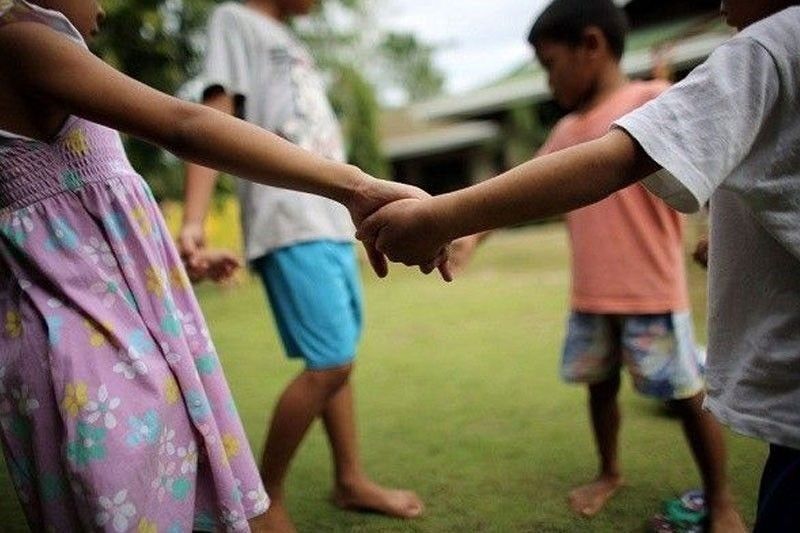Global initiative launched to protect kids from exploitation

MANILA, Philippines — Terre des Hommes Netherlands (TdH NL) is an international non-governmental organization committed to stopping child exploitation.
Since 1965, it has been protecting children around the world from violence, harmful child labor, trafficking, sexual exploitation, malnutrition and other health issues. TdH NL forms part of the Terre des Hommes International Federation (TDHIF), which is a network of nine organizations working for the rights of children and to promote equitable development. It currently holds a consultative status with the United Nations (UN), International Labour Organization (ILO), and the Council of Europe. As of 2022, TdH NL operates and implements its work through its nine country offices in Africa and Asia (including the Philippines), two regional offices located in Kenya and Cambodia, and the head office in The Netherlands.
Finding it necessary to do so, Terre des Hommes Netherlands recently embarked on a special project, a global research in Asia to find out how to better protect children from all forms of exploitation.
Titled “The Place of Intersection: Participatory Research to Update and Align Terre des Hommes Netherlands Cross-cutting Issues CCI,” the global research was launched at the B Hotel in Quezon City last September 7, and it talks about the principles that are essential to prevent and stop Child Exploitation, namely, Child Participation, Gender Mainstreaming, Inclusion of Children with Disabilities, and Minimum Standards of Alternative Care. The conduct of this study is in line with the organization’s commitment to contribute to the achievement of the Sustainable Development Goals (SDGs) and its central promise of “Leave no one behind.” The data that were gathered came from four countries — The Philippines, Bangladesh, Ethiopia, and Uganda — and contains valuable insights from children, communities and local civil society organizations (CSOs) present in these areas.
The research was able to identify good practices and areas for improving the organization’s programming at various socio-political levels under its new global strategy for 2023 - 2030 and strategic ambition. Moreover, it found out that, given the complexity of the issue of child exploitation, there needs to be a more comprehensive and consolidated approach to understanding the different vulnerabilities and situations of children in order to come up with relevant programs and mechanisms to support them better.
According to the results, children have made it clear that they would prefer activities to be organized with them, through collaboration, or by them, using a child-led approach. Research participants also emphasized the importance of inclusive practices in promoting the meaningful participation of children, including children with disabilities, which necessitates a broader understanding of disability that goes beyond the most severe or visible types.
Data from the study further highlighted prioritization of efforts to prevent unnecessary separation of children from their families and support other forms of alternative care like community-based care, family reintegration or kinship care. In addition, the research strongly advocates for using the intersectional approach to identify and address different social, cultural, political and economic intersections that act as barriers, and to create safe spaces to promote inclusivity and meaningful participation of children from different segments of society.
“The results of this global research will inform and help improve our programming to address child exploitation in the Philippines. Guided by its recommendations, we will continue to develop our strategy to mainstream intersectionality and promote inclusivity to address the emerging and re-emerging concerns in the country in relation to gender and social inclusion by studying and highlighting gaps in the work on child exploitation to develop new and innovative solutions. We will do this in collaboration with children and our partner organizations at the national and local levels,” said Eva Maria Cayanan, Country Director of Terre des Hommes Netherlands in the Philippines.
“This will also guide and enable civil society organizations and policy-makers to foster stronger national, regional and global protection systems to keep children safe from exploitation and ensure that their voices are heard. It will help various organizations to mainstream the core principles in their organizational policies and strategies like TdH NL has already done as part of the organization’s strategy and theory of change,” added Bushra Zulfiqar, Regional Director for Asia of Terre des Hommes Netherlands.
The research findings have demonstrated the need for an adaptable framework that embeds the above mentioned principles for more effective programming. Using such a framework calls for appreciating the different contexts where children and their families live, as well as the different manifestations of child exploitation. Facilitating the participation of children with intersecting identities in the overall development and implementation of child protection programs will help challenge and address harmful social and cultural norms, as well as political and economic barriers that can potentially increase the vulnerabilities of children to exploitation.



















